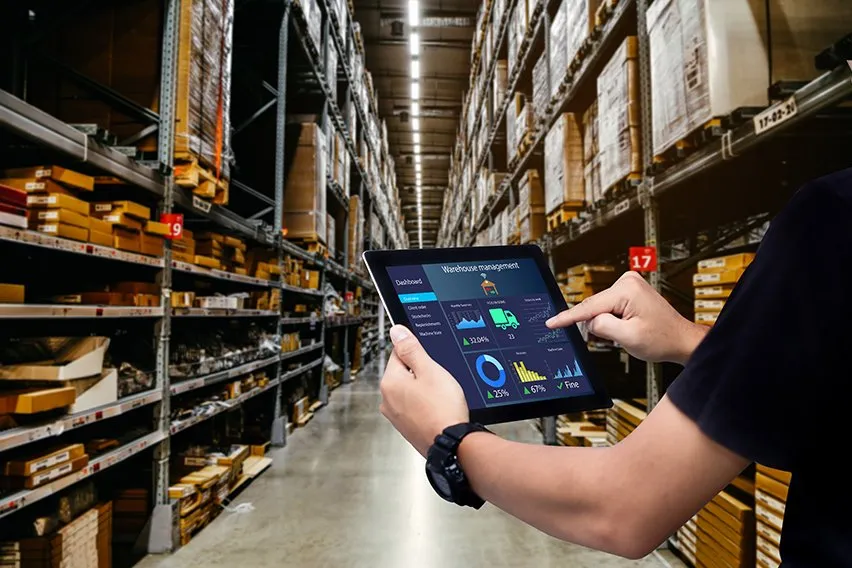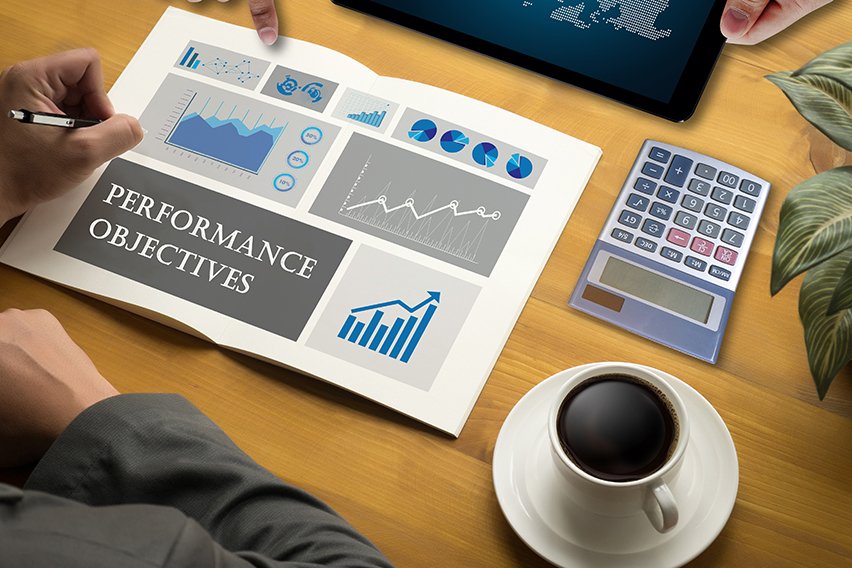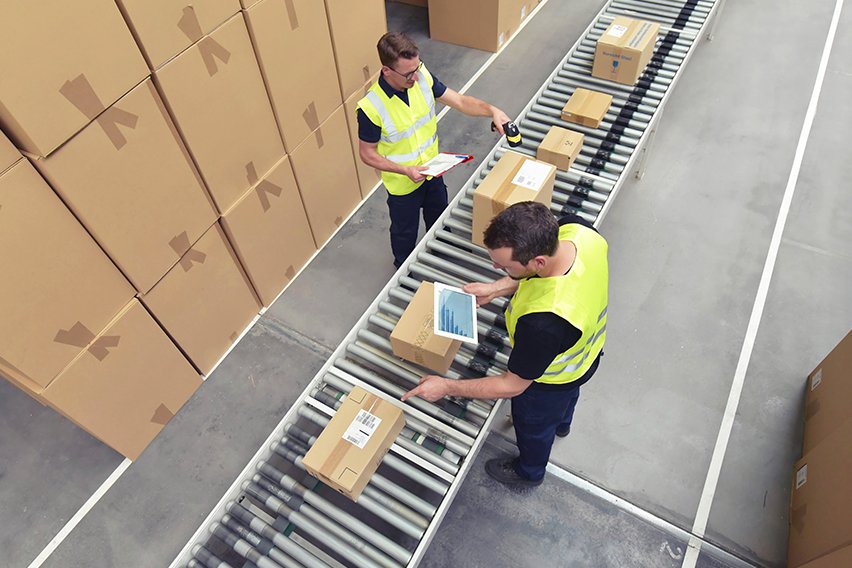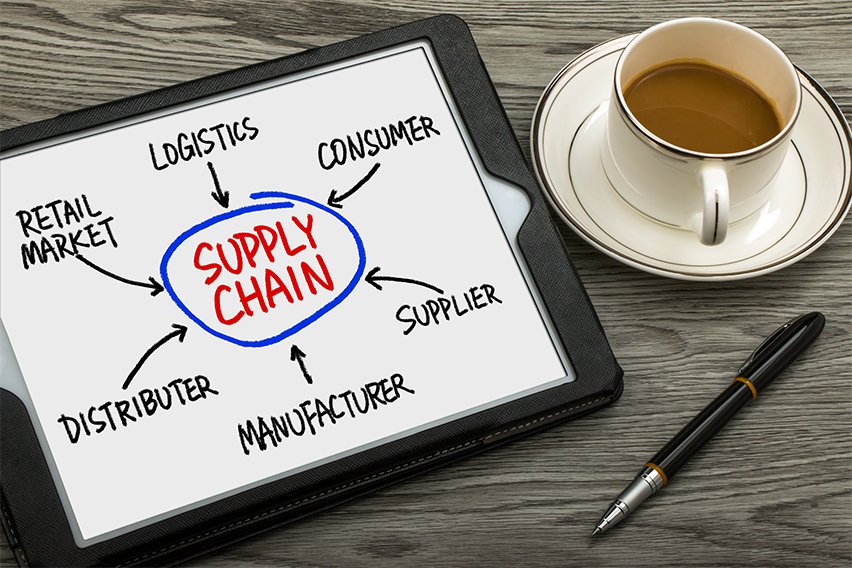Distribution Management: Definition & Advantages

There are many challenges that face a business owner.
Whether it’s setting up their business from scratch, or coming up with a long term plan for growth and expansion.
One of the challenges that has long faced business owners is distribution management. It is a task that is full of complications and nuance.
But what exactly is distribution management? We’ll go through a full definition and give you a list of advantages that highlight the importance of distribution management to your business.
Here’s What We’ll Cover:
What Is Distribution Management?
What Is the Difference Between Distribution and Logistics?
What Influences Distribution Management?
What Are the Business Distribution Channels?
What Are the Advantages of Distribution Management?
What Is Distribution Management?
Distribution management is the process used by businesses to get an oversight on the movement of goods. This process goes from supplier to manufacturer, then onto the wholesaler or retailer, then finally to the end customer.
There are a number of activities and processes that are involved with distribution management. This includes raw goods vendor management, packaging, storage and warehousing. It also involves inventory, supply chain and logistics.
Distribution management is a crucial part of the business cycle for distributors and wholesalers. This is because more often than not, their entire profit margins depend on how fast they can turn over their goods.
The faster and more efficient their distribution is, the more they can sell and the more they can earn. Having a successful distribution management system is also important for businesses to remain competitive and keep a happy and loyal customer base.

What Is a Distributor?
A distributor is an organization or establishment that supplies products to retailers. They may also sell to any other businesses that sell products directly to consumers. So for example, a wholesale canned goods distributor may supply to restaurants, supermarkets and independent food shops.
What Is the Difference Between Distribution and Logistics?
These two terms can often be mixed up. This is an understandable mistake as they share a lot of similarities.
Logistics refers to planning and detailed processes. This is when involved with the successful supply and transportation of goods. It includes various activities and processes such as:
- Supply management
- Bulk and shipping packaging
- Temperature controls
- Security
- Fleet management
- Direct delivery routing
- Shipment tracking
- Warehousing
The best way to think of logistics is as the physical distribution of the goods.
On the other hand, distribution is a management system that resides within logistics. It is focused on order fulfillment throughout its distribution channels.
The distribution channels are the chain of entities that a product or service moves through on its way from start to finish. So for example, a distribution channel would include e-Commerce websites, wholesalers or retailers.
It includes various activities and processes such as:
- Consumer or commercial packaging of the finished product
- Order fulfillment
- Order shipping
It’s easily described as a commercial or sales distribution.
What Influences Distribution Management?
There are a number of things that should be taken into account when considering your distribution management. These may include things such as:
- Purchasing Habits: It’s important to take into account your buyer purchasing habits. Various peaks and troughs in sales can influence the distribution patterns. This means that it can be useful to track these patterns and plan accordingly.
- Unit Perishability: When you’re handling perishable goods such as food, drink or medicine then time is of the essence. If your timing is off, then you can not realise a return on your initial investment as your stock has been wasted.
- Buyer Requirements: There can sometimes be changes in a retailer’s or manufacturer’s inventory demands. This can therefore affect your distribution management system.
- Transport Optimisation: It’s crucial that you make the most of each delivery. When looking at your logistics and fleet management, you’ll always want to make sure that each truck is full to capacity. It’s also important to make sure they are routed to the most efficient path.
- Seasonal Forecasting: Different products sell better at different times in the year. Therefore it’s important to consider your optimal product mixes.
What Are the Business Distribution Channels?
There are historically three different distribution channels. But with the rise of the internet in business, there are now four different channels. They are as follows:
- Wholesaler: In this channel, goods are distributed from manufacturers to wholesalers. So for example, a gin distillery will distribute their brand of gin to wholesalers.
- Retailer: This goes from manufacturer to wholesaler or retailers. So for example a designer clothing company would distribute to high-end retail chains such as Harrods, Selfridges etc.
- Distributor: This channel moves goods from the manufacturer to an authorised distributor. So for example, an Apple factory would distribute various Apple products to Apple stores for sale to consumers.
- e-Commerce: This is the newest channel. Goods and services are represented virtually in an online store. The products are then distributed directly to the buyer from the online store.

What Are the Advantages of Distribution Management?
1. Organization
If there wasn’t a systemized chain of supply then retailers would receive products directly from manufacturers. This would mean that shops would receive bulk orders that they cannot store.
When an appropriate distribution management system is in place, there is a much smoother chain of supply.
2. Customer Convenience
An advanced management system means that shopping is easy and convenient for consumers. For example, without a system in place every product and company needed to have it’s own store. This would then make it incredibly inconvenient for customers to hop from store to store.
3. Reduced Errors
A detailed distribution management system allows for less room for error in delivery. It also helps make clear the times that products need to be delivered.
4. Simpler Inventory Monitoring
Companies with a successful system can easily monitor their inventory. This is as everything will be accounted for within the management system. There will be a precise amount of inventory coming and going that can be easily tracked and accounted for.
5. Lower Costs
When everything is streamlined, you can save a significant amount of money. This is because you won’t have to worry about expensive last minute delivery fees. You will already have a system in place that means you have everything you will need.
6. Accuracy
An advanced distribution management system allows businesses to order the exact amount of items that they need within a given period of time. This means that customers don’t miss out on products that they frequently purchase, and businesses don’t lose out on any sales.
Key Takeaways
Distribution Management is a vital part of running a business. Companies will save a lot of time and money when they have a successful system in place which will in turn ensure future success and growth.
Are you looking for more business advice on everything from starting a new business to new business practices?
Then check out the FreshBooks Resource Hub.
RELATED ARTICLES

 What Is Subscription Billing? 6 Software To Manage Billing
What Is Subscription Billing? 6 Software To Manage Billing What Is a Partner Program? A Guide to Building an Ecosystem
What Is a Partner Program? A Guide to Building an Ecosystem What Are Performance Objectives? 5 Top Objectives
What Are Performance Objectives? 5 Top Objectives What Is Outbound Logistics: Strategies & Performance
What Is Outbound Logistics: Strategies & Performance Self-Employed Vs Employee: What’s the Difference?
Self-Employed Vs Employee: What’s the Difference? Supply Chain Planning: Process, Strategy & Benefits
Supply Chain Planning: Process, Strategy & Benefits